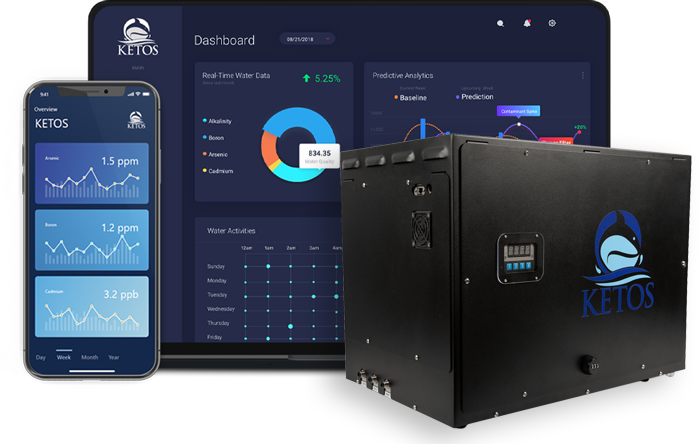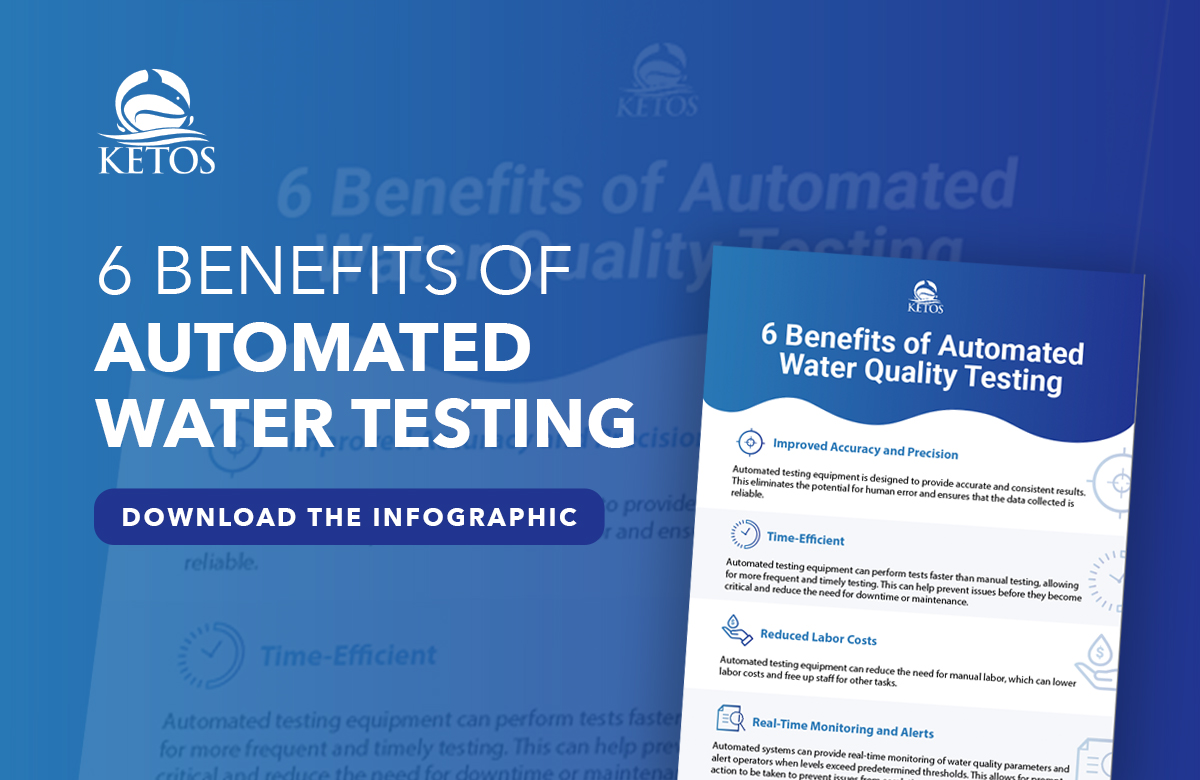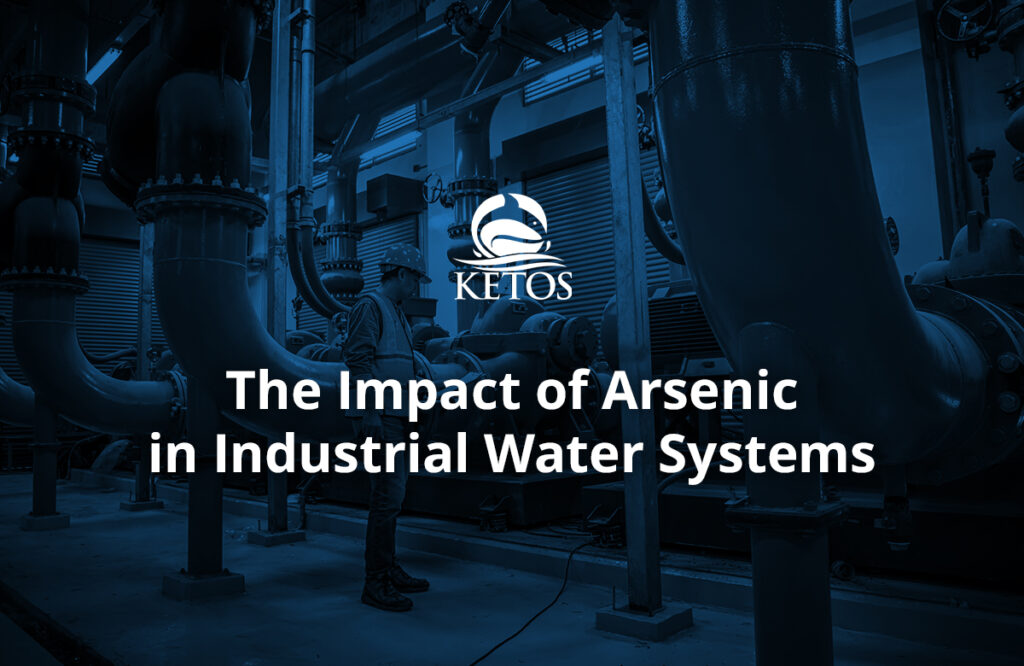The water industry is in the midst of a digital transformation, and the importance of managing water quality promptly cannot be underestimated. Water is a critical resource for various industries. Its quality impacts business operations and human health. Digital water technology has made it easier for water operators to ensure reliable and safe water delivery and management. There’s so much digital water technology can offer an organization, including improved accuracy, time savings, and cost reduction – and KETOS is on the front lines, helping a variety of business build efficiencies into how they approach water. Download our infographic on the six key benefits of automated water testing and read on to learn how KETOS uses technology to help companies manage their water intelligently.
Improved Accuracy and Precision
Automated testing systems provide lab-accurate and consistent results (in ppb). Automation in water monitoring ensures reliable data collection by eliminating the potential for human error. Operators gain unparalleled insights into water quality parameters through precise measurements and real-time analysis. With KETOS, businesses can make informed decisions based on accurate data, minimizing the risk of errors and improving overall operational efficiency.
Time-Savings
Water quality management works best with timely, actionable data. Traditional manual testing methods often consume valuable time and resources. KETOS’ on-site automated testing solutions enable faster testing, facilitating more frequent and convenient monitoring. No longer do companies need to wait on manual tests or third-party analysis. Instead, analysis is pulled in real-time and delivered via user-friendly dashboards that relay the latest water statistics right to operators.
With real-time data, catching potential issues before they escalate into critical problems becomes standard practice. Up-to-date analysis helps businesses avoid costly downtime and extensive maintenance procedures by being proactive rather than reactive.
Reduced Labor Costs
Automated water testing implementations reduce the need for manual labor, leading to significant cost savings. Businesses that integrate automation can reallocate their valuable human resources to more value-added work by minimizing the requirement for repetitive and time-consuming tasks. KETOS empowers staff members to focus on higher-level responsibilities, contributing to innovation, strategy, and business growth.
Real-Time Monitoring and Alerts
Mitigating risks associated with water quality requires swift action. KETOS’ real-time monitoring capabilities provide operators with threshold alerts when water quality levels exceed predetermined parameters. By receiving immediate notifications, water operators have the power to promptly address issues before they escalate. This minimizes potential damages and ensures uninterrupted operations (no downtime!). Proactive water management takes the guesswork out of chemical composition and helps operators better schedule maintenance tasks.
Historical Data Tracking and Analysis
Before digital water solutions, organizations found tracking and analyzing historical data challenging. KETOS’ automated systems store comprehensive data over time, enabling operators to monitor changes in water quality parameters much more effectively. With historical data at their fingertips, businesses gain valuable insights into their water management practices by studying and leveraging trends and patterns. Armed with knowledge, operators can make more educated decisions, optimizing resource allocation and enhancing operational efficiency.
Reduce Risk
Handling water infrastructure involves risk. For example, traditional water testing methods often involve manually handling potentially hazardous materials. These materials pose risks to human health and safety and require specialized training. KETOS’ automated water testing solutions eliminate manual tasks, providing operators with a safer working environment.
Another risk of ineffective water management practices involves potential contamination or the need to discard product batches. Water operators gain enhanced compliance when water quality monitoring is streamlined and automated. Organizations leveraging water technologies can better adhere to regulatory requirements, demonstrate their commitment to responsible water management, and protect their reputation.
Digital Transformation in the Water Industry is Changing Everything
With digital transformation comes the opportunity to enshrine water quality best practices while lowering the cost of doing business. With KETOS’ automated water testing solutions, companies can unlock a host of benefits that optimize their water management practices. By improving accuracy and precision, saving time and labor costs, providing real-time monitoring and alerts, enabling historical data tracking and analysis, and reducing risk, KETOS empowers businesses to prioritize water quality. With KETOS as a trusted partner, companies can navigate the complex water management landscape, safeguard human health, and drive sustainable growth. Embrace the power of digital water technology with KETOS and pave the way to a future where water quality is never compromised.
